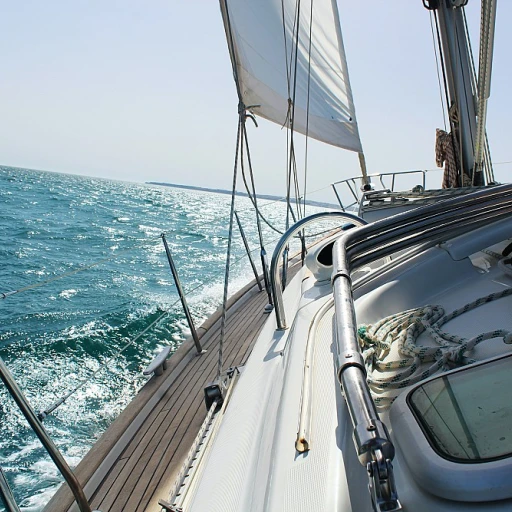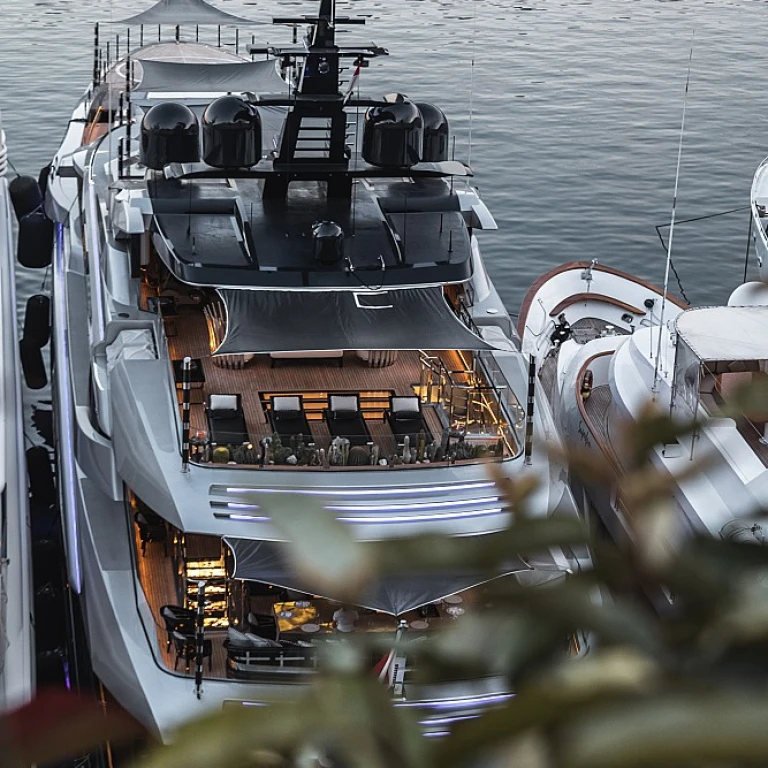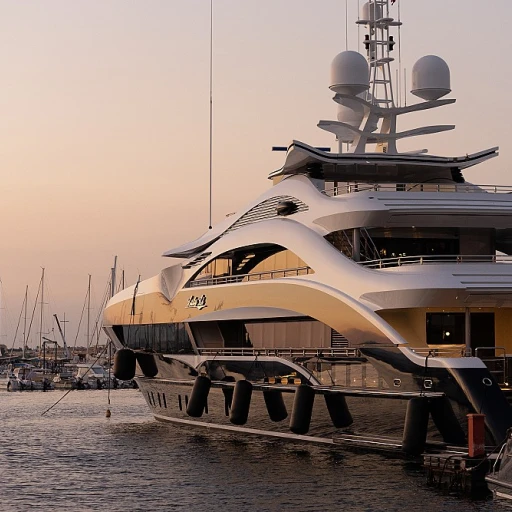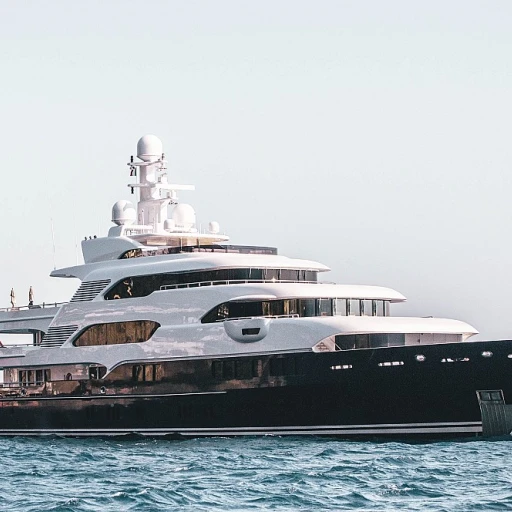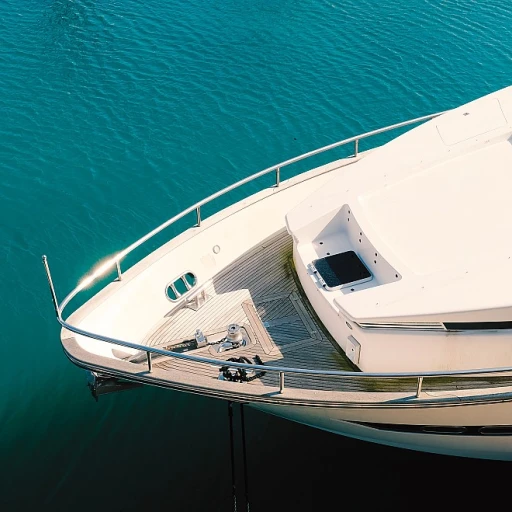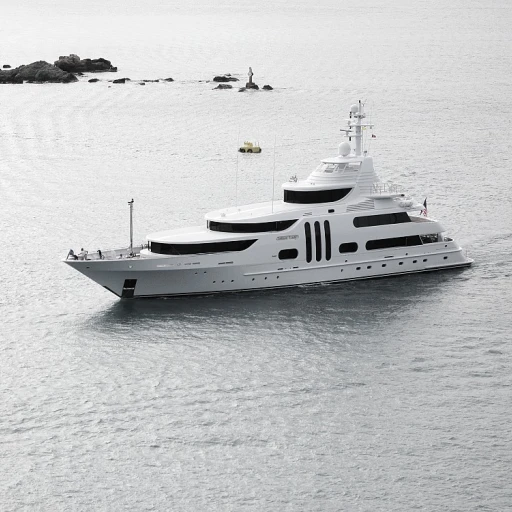The Rise of Diesel Engine Outboards
The Evolution of Marine Engines
The world of yachting has witnessed a significant shift with the growing presence of diesel engine outboards. These robust engines are making waves as boat owners and enthusiasts seek more efficient and durable solutions for their marine adventures. In recent years, the evolution of marine engines has been driven by the demand for power and performance, leading to innovations that redefine what outboard motors can achieve.
Diesel outboards, such as those from OXE Diesel and Cox Marine, bring a new level of efficiency to the table. Their design focuses on improved fuel efficiency, aiming to reduce diesel fuel consumption while maintaining high performance standards. This aligns with the needs of both leisure and commercial boating sectors, where reliability and cost-effectiveness are paramount.
One of the key players in this transformation is the outboard diesel engine. Outboard motors that run on diesel fuel offer a more efficient energy system for marine applications, providing longer ranges and better torque compared to traditional gasoline engines. The positive reception in the United States and other regions highlights the importance of these innovations in the marine market.
In comparison to their gasoline counterparts, diesel outboards provide commercial users with an option that not only lasts longer but also requires less frequent service. This can be attributed to the diesel engine's design, which inherently offers more robust parts and fewer maintenance demands, leading to a longer lifespan.
As the yacht industry continues to advance, the expansion and popularity of diesel engine outboards are a testament to their potential. Not only do they accommodate the evolving needs of boat owners, but they also set a new standard for what it means to operate a high-performance and fuel-efficient outboard motor. For those interested in exploring all aspects of boating, including the considerations for choosing the perfect lake boating anchor, this
detailed guide offers valuable insights.
Technological Innovations in Diesel Outboards
Technological Developments Enhancing Diesel Outboards
The world of diesel engine outboards is evolving rapidly, fueled by remarkable technological advances. The focus on creating more fuel-efficient and high-performance engines for modern yachts has led companies like Oxe Marine and Cox Marine to push the boundaries of what these engines can achieve.
Among the notable innovations, the integration of advanced remote control systems has made handling these powerful outboard motors much easier. This results in a smoother experience for the user, significantly enhancing maneuverability and control for diesel outboard engines.
Another important development in the realm of marine diesel engines is the optimization of fuel delivery systems. These systems aim to maximize diesel fuel efficiency, which is particularly crucial amid the increasing focus on sustainable and cost-effective solutions. As engines like those from Oxe and Yanmar incorporate cutting-edge technology to reduce the consumption of fuel oil, the positive impacts on both the environment and operational costs are evident.
Furthermore, the durability of diesel outboard parts ensures longevity and reliability, even in harsh marine environments. With enhancements in component design and manufacturing, maintenance has become more straightforward, offering commercial operators and yacht enthusiasts alike peace of mind regarding the service life of their engines.
For those interested in further exploring the technology that powers these engines, mastering the art of using advanced marine systems such as sand anchors can complement these innovations and optimize overall performance. For practical insights and tips, consider reading this guide to enhance your yachting experience.
Benefits of Diesel Engine Outboards for Yachts
Diesel engine outboards, with their high performance and robust durability, have become increasingly popular for yachts, particularly in commercial settings. The benefits these engines offer are pivotal in the decision-making process for yacht enthusiasts and the marine industry.
Fuel Efficiency and Longevity
Diesel outboards are celebrated for their fuel efficiency, providing a longer range due to the energy-rich nature of diesel fuel compared to gasoline. This efficient fuel consumption translates to longer voyages without the frequent need for refueling stops. Moreover, diesel engines tend to have a longer lifespan, making them a wise investment for those prioritizing longevity and value.
Enhanced Power Output
The power offered by diesel engines such as those from cox marine and oxe diesel is noteworthy. These engines deliver a high torque output, essential for heavy-duty operations and maneuvering large vessels, which is often required in commercial environments. This power advantage allows yacht operators to navigate challenging conditions with confidence.
Positive Environmental Impact
When compared to gasoline, diesel outboards emit less carbon dioxide, contributing to a reduced environmental footprint. Operational efficiency contributes to fewer emissions per mile traveled, aligning with the growing emphasis on sustainable marine practices. Marine diesel systems, like those from oxe marine and yanmar, support this environmentally conscious approach.
Service and Reliability
The reliability of diesel outboards is another attractive feature. They require less frequent servicing and exhibit resilience amidst rigorous marine conditions. Diesel engines are built for heavy-duty use, which means that the demand for maintenance is often less intensive, translating into cost savings for boat owners.
In summary, opting for a diesel outboard engine offers a variety of benefits that are indispensable for yacht owners who prioritize fuel efficiency, power, and environmental sustainability. These factors make diesel engines a strong contender for anyone considering an upgrade or new yacht purchase. For further insights into selecting and maintaining critical yacht components, such as understanding the lifespan of lifejackets, ensure that your vessel is always equipped with reliable safety gear
link.
Challenges Facing Diesel Engine Outboards
Addressing the Hurdles for Diesel Engine Outboards
Navigating the yachting industry demands a keen understanding of the challenges diesel engine outboards face today. While diesel outboards like those offered by Oxe Marine and Cox Marine promise robust performance, their adoption is not without obstacles.
First and foremost, the high initial cost of diesel outboards compared to traditional gasoline counterparts can deter potential buyers. Diesel engines require more intricate parts and advanced engineering, leading to higher upfront investment. However, this can be offset by the long-term fuel efficiency and longevity of diesel engines, a point underscored in previous discussions.
Another factor is the availability of diesel fuel. While marine diesel fuel is generally accessible, variations in fuel oil types and regulations in different regions, especially across the United States, can pose challenges. Yacht owners need to be well-informed about local fueling stations that supply marine diesel to mitigate these concerns.
Maintenance and service for diesel engines also present hurdles. Diesel outboards, due to their complexity, often require more specialized knowledge for servicing. Ensuring that service centers possess the expertise to handle these outboards is paramount. Despite this, the positive impact on engine longevity with regular maintenance remains a compelling advantage.
Furthermore, diesel outboards tend to be heavier than gasoline variants, which could affect a boat’s performance. Adjustments to the boat’s balance and stability systems might be necessary to accommodate the heavier outboard motors. Yet, the resulting high power and performance might outweigh this disadvantage for commercial operators and serious yachting enthusiasts.
Navigating these challenges requires a balanced understanding of both the promises and the limitations of diesel outboards. As the industry evolves, advancements in technology and fuel efficiency will play a pivotal role in addressing these challenges, paving the way for more widespread adoption.
Comparing Diesel and Gasoline Outboards
Comparative Insights: Diesel vs. Gasoline Outboards
When considering an outboard engine for your yacht, the choice between diesel and gasoline often tops the list. Each offers distinct characteristics that cater to different needs in the marine environment.
Diesel outboards, such as those developed by OXE Marine or Yanmar, are renowned for their fuel efficiency and robustness. They deliver high performance with every drop of diesel fuel, which is often more readily available in commercial marine settings. This makes them particularly attractive for those embarking on longer nautical journeys where fuel efficiency is critical. Additionally, the longevity of diesel engines is largely attributed to their robust construction and slower burnout rate of parts, providing a positive long-term service outlook.
In contrast, gasoline outboards traditionally boast lighter weights and higher RPM potential. These characteristics offer quicker acceleration and potentially higher top speeds. For yacht enthusiasts seeking a boat engine with rapid responsiveness, gasoline may appear more appealing. However, the trade-off lies in fuel efficiency, as gasoline outboards often consume more fuel oil compared to their diesel counterparts, resulting in increased operational costs over time.
When evaluating power and performance, diesel outboards excel in delivering consistent high power, thanks to advanced systems from providers like Cox Marine. This ensures yachts can tackle commercial marine applications with ease. In comparison, gasoline outboards might offer more thrust on lighter boats but may fall short in heavy-duty applications.
Ultimately, the decision between diesel and gasoline outboard engines depends on your yachting priorities. If fuel efficiency and engine durability are paramount, diesel outboards clearly stand out. However, for those prioritizing maneuverability and speed, gasoline options might be initially more tempting but could incur higher long-term fuel costs.
The Future of Diesel Engine Outboards in Yachting
Anticipating the Path Ahead for Diesel-Powered Outboards
The future of diesel engine outboards in yachting looks promising, yet it's not without its complexities. As technology continues to advance, the industry is poised for significant changes. Diesel outboards are becoming increasingly fuel efficient, which serves as a robust solution for those seeking extended range and reduced operational costs. These advancements are expected to keep diesel at the forefront of marine propulsion.
The commercial sector sees strong potential in diesel-powered outboards, considering their high power and durability. With established brands such as OXE Diesel, Yanmar, and Cox Marine committing to innovation and quality, diesel engines are tailored to meet the demanding requirements of commercial use and provide a positive impact on performance.
However, as discussed earlier, the diesel landscape is not without challenges, such as regulatory hurdles and the ongoing evolution of emission standards. The ability of manufacturers to adapt to these changes will be pivotal in ensuring the continued relevance and growth of diesel outboards.
Moreover, the comparison between diesel and gasoline outboards has shown diesel's perspective advantages, especially within certain niches. Diesel fuel's efficiency and power delivery remain significant selling points over gasoline counterparts, particularly for larger vessels requiring robust performance metrics and extended service intervals.
Looking ahead, the integration of more advanced systems like remote control and enhanced fuel oil management may further boost diesel engines' attractiveness for yacht enthusiasts. Additionally, sustainability trends are heavily influencing the industry, prompting a focus on cleaner, greener marine diesel solutions.
In conclusion, while the diesel outboard segment faces challenges, its continued evolution and adaptation to future trends are crucial. Embracing technological innovations ensures that diesel engines will remain a vital player within the marine industry.
